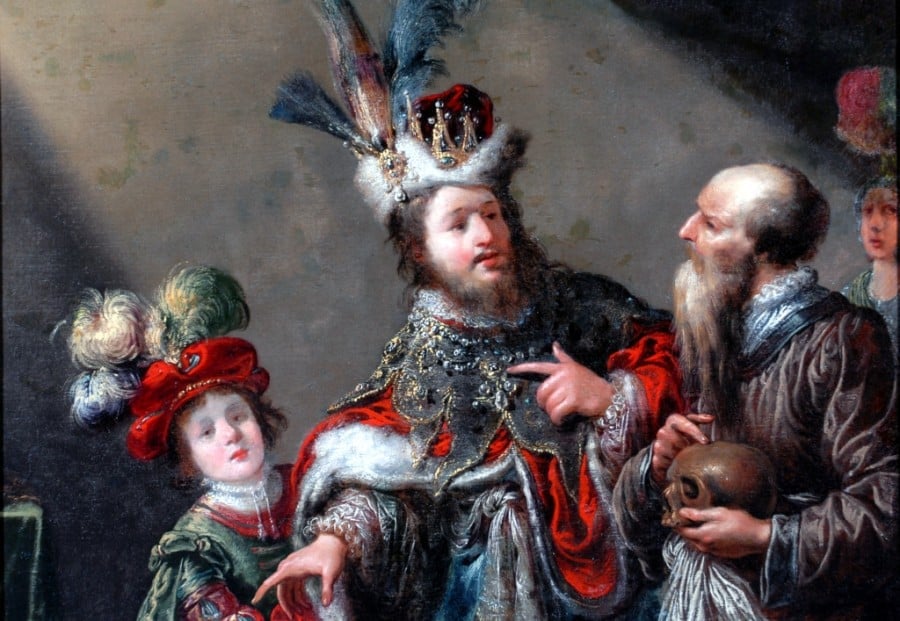Why Wasn’t Croesus the Happiest Man in the World?
Where did evil come from? Christian philosophers have offered different answers to this question over the centuries, passionately debating among themselves. Yet they could never bypass one of the central dogmas of their faith: the concept of “human sin.”
In the 18th century, however, the French Enlightenment thinkers (who, in my view, “enlightened” some things while “obscuring” others) dismissed this idea altogether, declaring that “human sin” was nothing more than a fairy tale. As a result, nature itself seemed to say to humankind: “You are wasting your time seeking happiness outside the world in which I have placed you.” Diderot wrote: “Nature will free your heart from the fears and anxieties that torment you.”
Once the notion of sin was rejected, some rational explanation—or perhaps even a “justification”—was needed for the existence of evil. Here, Diderot’s intellectual ally, Voltaire, offered the following consolation: life would be unbearably dull without human weaknesses. After all, he argued, the strongest impulses in our lives come from our instincts and passions—forces that are often not particularly virtuous.
From a purely scientific point of view, this is hardly an invention. Yes, nature contains both beauty and brutality. But so what? These vague philosophical notions were later taken up by Pierre Maupertuis, a mathematician and philosopher of the same era, who tried to systematize them. He proposed a kind of scale to calculate the balance of pleasure and pain in the pursuit of happiness.
Such rational calculations, born of the rejection of theology and absolute values, end up sounding rather absurd.
In the latter half of the 18th century, Immanuel Kant took a stand against such thinking. He rightly pointed out that only homogeneous phenomena can be measured and compared. For example, consider this: eating ice cream is a form of happiness, and finding a life partner is also a form of happiness. But how many ice creams would equal the joy of finding true love?
And who decided that the central goal of human life should be happiness?
Influenced by the French Enlightenment, the U.S. Declaration of Independence famously proclaims the right to “life, liberty, and the pursuit of happiness.” But no matter how historically significant the document, it cannot serve as a moral compass for everything. Are we to believe that the mind’s main purpose is to extract as much happiness—or pleasure (however we define it)—as possible?
What about duty, service, mission, solidarity with others? These values often contradict our personal happiness or, at the very least, the common idea of what happiness is supposed to be.
…According to an ancient tale, the wealthy Lydian king Croesus once hosted the Greek philosopher Solon. Proud of his immense riches, Croesus asked:
“Tell me, who is the happiest man in the world?”
Naturally, he expected Solon to name him.
Instead, the philosopher spoke of a man named Tellus, an Athenian who lived modestly in his homeland, reaped the fruits of his labor, and died honorably in battle for his country.
Croesus, unable to contain himself, asked:
“So, do you not consider me happy?”
Solon replied:
“The gods have not given us the ability to know the outcome of our lives. To call someone who is still alive happy is like declaring a soldier who is still fighting the battle a victor.”
Aram ABRAHAMYAN






















































